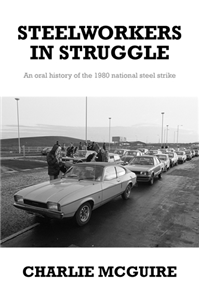Description
More Information
Rights Information
Albania, Algeria, Angola, Argentina, Armenia, Australia, Austria, Bahrain, Belgium, Belize, Benin, Bolivia, Bosnia and Herzegovina, Botswana, Brazil, Bulgaria, Burkina Faso, Burundi, Cameroon, Canada, Cape Verde, Central African Republic, Chad, Chile, China, Colombia, Comoros, Congo [DRC], Congo, Republic of the, Costa Rica, Ivory Coast, Croatia, Czech Republic, Denmark, Djibouti, Ecuador, Egypt, El Salvador, Equatorial Guinea, Eritrea, Estonia, Ethiopia, Faroe Islands, Finland, France, French Guiana, Gabon, Gambia, Georgia, Germany, Ghana, Greece, Guatemala, Guinea, Guinea-Bissau, Guyana, Honduras, Hongkong, Hungary, Iceland, India, Indonesia, Iran, Iraq, Ireland, Israel, Italy, Japan, Jordan, Kazakhstan, Kenya, Kuwait, Latvia, Lebanon, Lesotho, Liberia, Libya, Lithuania, Luxembourg, Macau, China, Macedonia [FYROM], Madagascar, Malawi, Malaysia, Mali, Malta, Mauritania, Mauritius, Mayotte, Mexico, Mongolia, Montenegro, Morocco, Mozambique, Namibia, Netherlands, New Zealand, Nicaragua, Niger, Nigeria, Norway, Oman, Pakistan, Panama, Paraguay, Peru, Philippines, Poland, Portugal, Puerto Rico, Qatar, Reunion, Romania, Russia, Rwanda, Saint Helena, Sao Tome and Principe, Saudi Arabia, Senegal, Serbia, Seychelles, Sierra Leone, Singapore, Slovakia, Slovenia, Somalia, South Africa, South Korea, Spain, Sri Lanka, Sudan, Suriname, Swaziland, Sweden, Switzerland, Syria, Taiwan, Tanzania, Thailand, Timor-Leste, Togo, Tokelau, Tunisia, Turkey, Uganda, Ukraine, United Arab Emirates, United Kingdom, United States, Uruguay, Venezuela, Vietnam, Western Sahara, Yemen, Zambia, Zimbabwe, South Sudan, Cyprus, Palestine, Bangladesh, Cambodia, Liechtenstein, Azerbaijan, Jamaica, Kyrgyzstan, Dominican Republic, Myanmar, Monaco
Reviews
The 1980 national steelworkers strike was an epic social and political event. It was the first national industrial conflict between trade unions and the new Thatcher government, lasting for three months and involving over 100,000 workers. The strike was also, at that time, the longest national industrial stoppage since 1926. The strike was nominally in response to a 2% pay offer made by British Steel Corporation (BSC), at a time when inflation was 17%, but was generated by deeper factors, namely the widespread works closures that were devastating the industry. Over 60,000 jobs were lost between 1973-1978 and shortly before the strike occurred, BSC had announced a further 52,000 redundancies, around one-third of the workforce. The strike lasted for thirteen weeks and was characterized by high levels of activism in the form of mass picketing and involvement in the strike committees that were organised throughout the steel towns in Britain. The outcome was a significantly higher pay increase but BSC and government strategy for the industry remained unchanged; over the next three years around 90,000 steelworker jobs would be lost, as the industry was prepared for privatisation. Using oral history testimonies taken from workers throughout the country, the book explores the strike, its origins, development, outcome, and longer-term impact and consequences. It argues that the strike was a critical turning point in British history and one which would have serious implications for working class organisations and communities in the years that followed.
Author Biography
Charlie McGuire is a Senior Lecturer in History at Teesside University
Manchester University Press
Manchester University Press is a leading UK publisher known for excellent research in the humanities and social sciences.
View all titlesBibliographic Information
- Publisher Manchester University Press
- Publication Date May 2025
- Orginal LanguageEnglish
- ISBN/Identifier 9781526123206 / 1526123207
- Publication Country or regionUnited Kingdom
- FormatPrint PDF
- Pages272
- ReadershipCollege/higher education; Professional and scholarly
- Publish StatusPublished
- Dimensions234 X 156 mm
- Biblio NotesDerived from Proprietary 4506
- Reference Code9991





